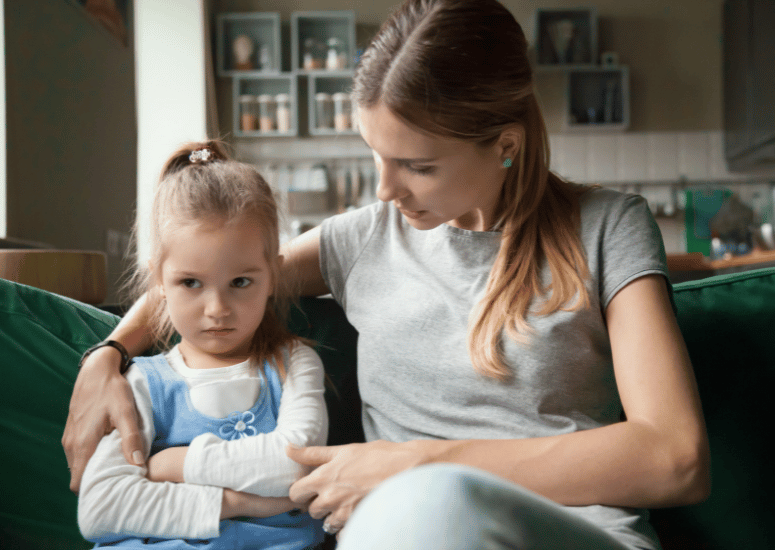EXPLAINER: What is 'eggshell parenting' and how can it affect a child?
Since "eggshell parenting" went viral on TikTok, it's been seen as one of the most unhealthy parenting styles ever.
It goes without saying that it takes great physical and mental strength to raise a kid. Apart from the pressure to conform to societal standards of “good parenting,” other challenges that a parent could face are their personal issues that could negatively affect how they react to certain situations. Such unpredictability in their mood could turn them into an eggshell parent.
What is eggshell parenting?
Clinical psychologist Tricia Zafra told PhilSTAR L!fe that eggshell parenting happens “when parents go by their changing and erratic moods in behaving towards their child.”
She added that the parents’ mood significantly influences how they interact with their child. "For instance, a child breaks a vase and says sorry. Because the parents are in a good mood, they would respond forgivingly to the child, talk calmly about being more careful next time, and acknowledge the child's apology," she explained, adding that the contrary happens when a parent is in a bad mood as they would resort to hostile practice like yelling.
"And then when the mood gets better, the parent suddenly becomes in the mood to play with the child and interact in an affectionate way," she continued.
“With this kind of parenting, parents do not take the time or effort to talk, apologize, or explain to the child what happened and take responsibility for their hostile behavior, outburst, or acting up,” she added.
In an interview with L!fe, registered psychometrician Carl Bacurin said that this behavior causes a child to be “confused” with their interaction, which could make them think that “the world is an 'unsafe environment.’”
“The interesting term was inspired by the figurative line ‘walking on eggshells,’ wherein the child needs to be careful to prevent being subjected to negative emotional reactions from their parents,” he explained, adding that this can lead to a child being “overly conscious” or vigilant when it comes to their interactions with others.
What makes one develop this parenting style?
According to Bacurin, a parent's experiences with their caregivers in the past could make them develop the eggshell parenting style.
“Their caregivers may have shown ambivalent attitudes toward them since they [caregivers] were also dealing with their own personal issues. They may have felt unsupported whenever they felt distressed, leading to confusion about how to handle one's feelings and emotions,” he explained. This, in turn, makes them unfamiliar with how they manage their emotions as they deal with certain situations concering their children.
Zafra also highlighted the need to acknowledge the fact that parenting is hard and stressful, which significantly affects parents especially when they have unaddressed mental health issues.
“The stressful nature of parenting can increase their distress and further impact mental health. This can negatively impact the way they raise their child,” she said.

To know if you’re an eggshell parent, one prime factor to look out for are your inconsistencies and sudden changes in your mood.
“Some manifestations to watch out for are frequent inconsistencies in their thoughts and behaviors, sudden changes of mood in abrupt frustrations especially related to their children, and overt or covert outbursts over minor inconveniences,” Bacurin told L!fe.
Eggshell parents may have “aggressive or violent tendencies,” according to Zafra, adding that such can lead to abuse.
How can eggshell parenting affect a child?
Eggshell parenting can have a negative effect on a child's mental health, especially since it may create a harmful environment.
Delving further on its dangers, Zafra explained, “For example, frequent hurtful words we say to the child when we are at the height of our anger may result in children forming unhelpful self-deprecating beliefs. This can have an impact on their self-esteem.”
She added that it may also make the children perceive that the abrupt change in mood is the normal way of interacting with other people, which may leave children adapting these “erratic” tendencies with regard to their social life.
“They might have challenges forming and sustaining social and romantic relationships because of this. As a result, they might grow up isolated and withdrawn, lacking social support. This would make them at risk for mental health issues,” she explained.
Bacurin seconded this, adding that this may help develop a child's "anxiety and depressive tendencies which can affect their overall well-being.”
Although challenging, children could better handle such situations and in turn, “break the cycle” by knowing the “red flag” behaviors and learning to control emotions.
Bacurin said that children need to learn how to manage their emotions through mindfulness-based strategies, such as breathing exercises.
He also noted the importance of having someone to confide their feelings in.
“They can also cope by identifying and communicating with trusted individuals such as their family members, friends, or a mental health professional who will listen to them in a nonjudgmental manner,” he shared with L!fe, adding, “It would be beneficial for the child to be exposed to strong, authentic relationships.”
Zafra seconded this, noting how difficult it can be for children to just manage it by themselves.
“Keeping connected to extended family members, a feature of our collectivist culture, may be helpful at times in this situation,” she said, noting that it is also crucial to expose children to other people since they would be able to develop and enhance their interpersonal skills and learn how to react in different situations.
Breaking out of being an eggshell parent
Zafra, noted that it's normal for parents to sometimes “lose it” because of stress, but such behaviors can still be “unlearned” by taking accountability and seeking professional help.

“With the proper intervention, parents can develop more adaptive ways of coping with stress and have more effective ways of relating to their child,” she explained. She added that parents may also get healthy parenting tips from reliable sources online, as well as maintain social support.
Bacurin added that having self-awareness and addressing past issues would be crucial in unlearning this parenting style.
“It will be also beneficial to properly process their past issues which tend to precipitate and/or perpetuate their present attitudes and behaviors. This can be done through counseling or psychotherapy, and with the assistance of mental health professionals,” he said.


